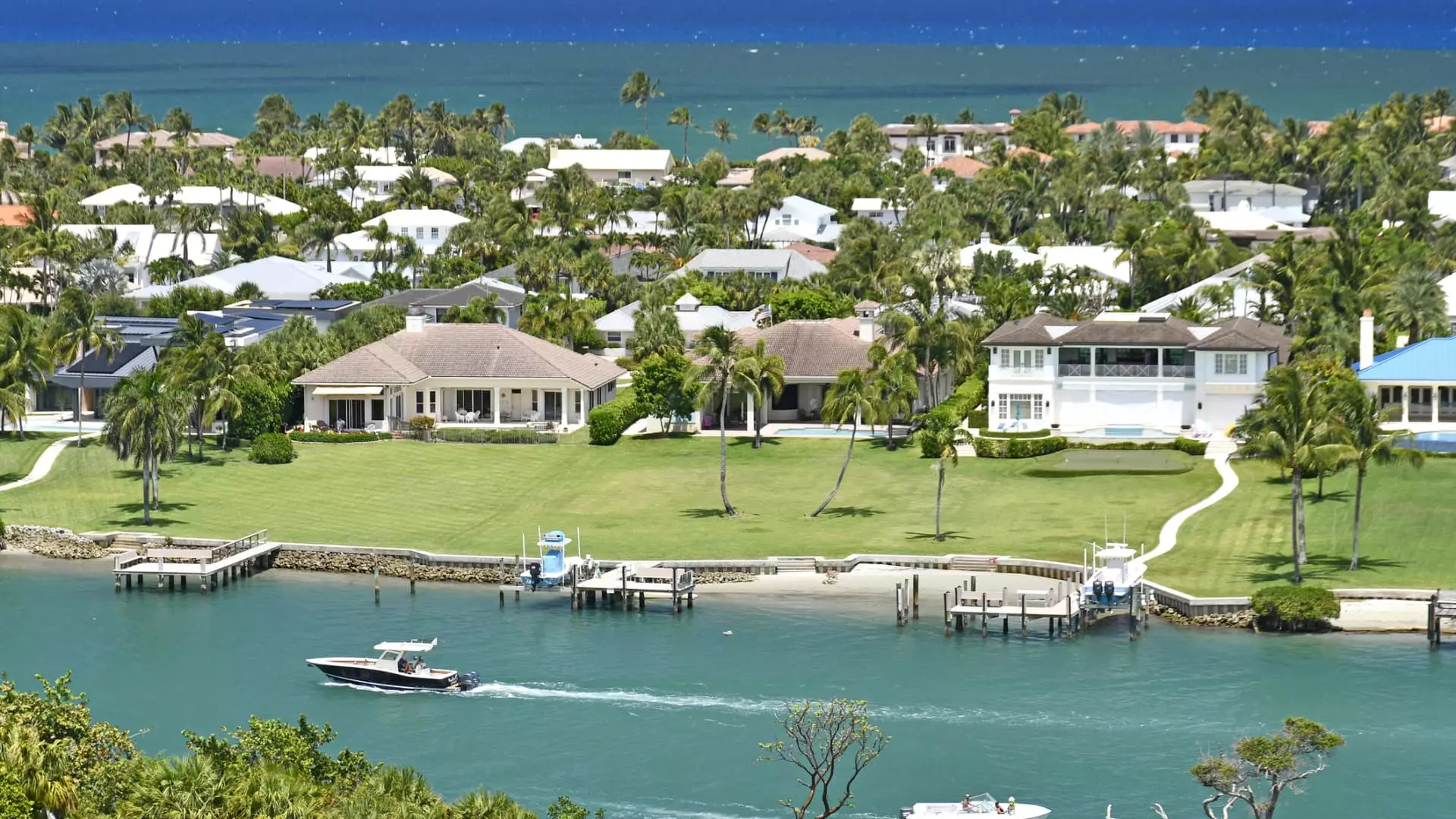The luxury real estate landscape in 2025 paints a glaring picture of inequality within wealth itself. Rooted in Coldwell Banker’s recent survey of over 200 luxury real estate agents, the stark contrast between ultra-wealthy buyers—those with net worth upward of $30 million—and the merely affluent has become impossible to ignore. While the ultra-rich continue to dominate the market with aggressive, all-cash purchases, their less wealthy counterparts are more cautious, increasingly shaped by economic uncertainties, interest rate hikes, and a volatile stock market.
This division underscores a broader tension, revealing how financial privilege dictates not only access but confidence in market participation. The ultra-wealthy are shielded from the ripple effects of interest rate shocks because they bypass traditional financing altogether. Their ability to purchase homes outright at a time when borrowing costs soar gives them a decisive advantage, enabling swift transactions and better negotiating power. Cash is king—not merely a method of payment but a shield against economic turbulence.
Cash Purchases: The Ultimate Economic Safety Net
What’s striking in this high-stakes arena is the increasing reliance on all-cash deals. According to the survey, more than half of agents reported a rise in cash purchases in the first five months of 2025. Contrast this with less than 4% noting a decline. The math is simple: why pay exorbitant interest when you have the liquidity to close deals instantly?
This trend reveals an unspoken truth: economics is only a game for those with deep pockets. High borrowing costs, which might dissuade or entirely exclude average wealthy buyers, barely dent the ultra-rich. The emphasis on cash transactions reflects more than just convenience—it’s about exerting control, assuring speed, and avoiding uncertainty. One could argue this dynamic solidifies disparities within the luxury market itself, creating a gated elite club that’s practically immune to traditional market pressures.
Luxury Real Estate as a Hedge Against Volatility
Even as interest rates rise, the perception of real estate as a safe haven persists strongly among the affluent. The enduring appeal lies in real estate’s status as a hard asset—a hedge against inflation and stock market volatility. Over two-thirds of surveyed agents confirm that their wealthy clients are either maintaining or increasing their exposure to real estate holdings despite economic headwinds.
While equities fluctuate with greater unpredictability, tangible assets like property provide a sense of solidity, a fortress for wealth preservation during uncertain times. However, it’s not lost on these buyers that the market itself is cyclical and subject to downturns, but they remain committed to this asset class, arguably reflecting an old yet resilient tenet of wealth management. This preference may also indicate a discounting of alternative investments that can foster broader economic growth or social equity, a shortfall symptomatic of elite economic insulation.
The Market’s Cooling: Fewer Sales and Higher Buyer Expectations
Luxury real estate, while resilient in many ways, is not immune to fluctuations. The report indicates a dip in sales in May 2025 following a stock market decline in April, with attached luxury property sales plummeting by over 21% year over year. Even affluent buyers are not immune to market sensitivity—many are becoming more discerning, scrutinizing features and amenities more intensely.
What stands out is the rising sophistication of modern luxury consumers, particularly newcomers who demand smart home technology, spa-grade facilities, and seamless indoor-outdoor living spaces. This shift exemplifies a market where simply owning a luxury property no longer suffices—buyers seek experience, comfort, and status-enhancing features. Sellers who fail to meet these elevated expectations face pressure to reduce prices or risk stagnation.
Privilege in Disguise: The Quiet Crisis of Affluent Buyers
While the ultra-wealthy swagger through the luxury real estate market, flaunting their purchasing power in all-cash transactions, the affluent but less fortunate—those in the multimillion-dollar bracket but not the tens of millions—find themselves trapped in a harsh paradox. Elevated borrowing costs and economic ambiguity mean that many of these buyers must navigate with caution, sometimes halting or delaying decisions altogether.
This bifurcation signals a broader societal issue often ignored: wealth is not monolithic. Economic policies and market forces that influence interest rates and financial markets have asymmetric impacts depending on access to liquid capital. The lavish world of luxury real estate becomes not just a playground but a stark reminder of how divide and insulation prop up fortunes while tightening barriers for others who remain “merely wealthy.”
Ultimately, this data reflects more than a market trend—it exposes an important social fissure, calling for more nuanced discussion about access, economic resilience, and what true wealth means in today’s unstable economy.


Leave a Reply